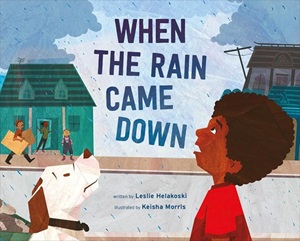Some wisdom about Voice from editor Kim Griswell:
Discussions of voice tend to begin with one question: Isn’t voice just the way my characters sound? The answer: “Yes…but…” Yes, each character your book has to have his or her own individual voice: Wilbur can’t sound like Charlotte and Charlotte can’t sound like Bart Simpson. Each character does need a distinct voice and personality. But the larger discussion of “voice” isn’t about differentiating characters from one another. It’s about differentiating you–the writer–from the pack of writers already out there.
Every book a writer produces should clearly reveal that writer’s unique sensibility. Every book must turn the writer’s psyche and brain and life experience inside out and say, “Hey, world! Take a look! This is what I’m all about.” Each of you has a special way of viewing the world, interacting with the world, and acting in the world. That unique viewpoint is not just based on your DNA. It’s infused with every single experience life has brought you. That revelation of that viewpoint in writing IS voice.
As an editor, the most common problem I see in the work of beginning writers is a generic (rather than a particular) voice. In fact, generic writing has no voice. It is mundane and pedestrian, and it offers no unique point of view to the reader. The editor sighs and says, “I’ve seen this a bazillion times! Why don’t I ever get any submissions that make me think, ‘Wow’! I’ve never seen this before!’”
Don’t get me wrong: Almost every fledgling writer begins with generic writing. The beginning writer often (consciously or unconsciously) writes in the style of a bestselling author who is currently in the limelight or a beloved word-crafter whose style got embedded in the brain during childhood. That’s okay. In fact, that’s great! You’re writing, you’re putting words on the page, you’re beginning to understand what a plot is and how to develop characters, and you’re on your way. Keep at it! But don’t stop at generic writing…and please, oh please, don’t send it to an editor. Before you submit, move beyond generic writing to your own voice.
These four steps will help:
1, Write. A lot. Write as often as you can. The more you write, the more quickly you’ll move past Dr. Seuss and Laura Ingalls Wilder and Mo Willems and Jon Scieszka to you!
2. Try as many different forms as possible: poetry, nonfiction, picture books, short stories, and novels. Write web copy, ad copy, and songs…the more forms you try, the more likely you’ll find the one that feels truly natural. (This is the opposite of trying to write what is selling today or what you think editors want. Believe me—you can’t know what editors want because we don’t know what we want ourselves until we see it on the page. We want a walloping good story with a unique mind behind it: i.e. we want voice!)
3. Free write. Sit down with the intention to just let words flow. Don’t have a goal. Start with nothing or open a book and plunk down your finger on a phrase and start with that phrase. Start with a childhood memory. Start with a photo or a sound or a smell or a taste. It doesn’t really matter how you start. What matters is that you let words flow without a particular goal and you keep letting them flow for a minimum of five minutes. As you let words flow, they become looser and looser. The words at the end of the five minutes will likely be far closer to your own voice than those at the beginning. It’s a bit like having a glass of wine during a conversation. What you say after a glass of wine is looser and more revealing of the “real” you than what you said before the wine.
4. Write with a pen or pencil on actual paper. Virginia Berninger, a professor of educational psychology at the University of Washington, says “handwriting requires executing sequential strokes to form a letter, whereas keyboarding involves selecting a whole letter by touching a key.” MRIs show that handwriting activates “massive regions involved in thinking, language and working memory—the system for temporarily storing and managing information.” In other words, writing by hand will access more of the memories you need to access if you want to write with a unique voice. You certainly don’t have to write by hand all of the time—admittedly it may slow you down—but do it often enough to get in plenty of “voice finding” time. Five minute a day would make a great starting point!






